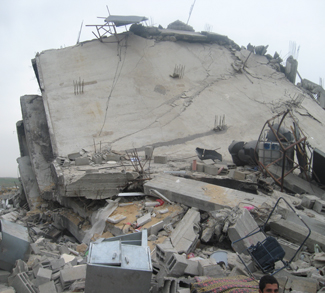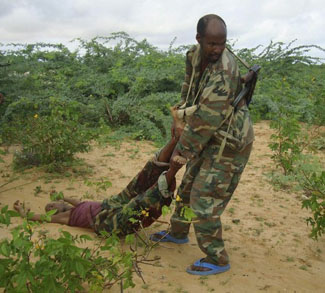The Iranian ballistic missile barrage aimed at Tel Aviv marked a severe escalation in the ongoing conflict that has engulfed the Middle East since October 7. However, the mostly spectacular show of force will do little to alter the balance of power in the region. Israel will remain a key power in the region, capable of asserting deterrence and influencing key events. Israel’s swift decapitation of Hezbollah and Hamas leaders along with its ongoing negotiations through the Abraham Accords highlights that Israel is pursuing a combination of diplomatic, military, economic, and strategic measures that will maintain the status quo for the foreseeable future.
The assault occurred in the wake of Israel’s ground operation in southern Lebanon, intended to deter the Iran-backed Shia group Hezbollah from continuing its aggressive actions toward Israel’s northern border. Over the past year, these hostilities have resulted in the displacement of more than 80,000 Israelis, illustrating the humanitarian toll of this conflict. The barrage struck multiple buildings in downtown Tel Aviv and is estimated to be the largest rocket attack on Israel since its founding, representing a significant display of force by the Islamic Revolutionary Guard Corps (IRGC). While this action aimed to leverage the situation to tip the strategic advantage in favor of Iran, it is unlikely Israel’s tactical and military superiority in the region will diminish any time soon.
Iran’s barrage of 150 missiles targeted central Israel as a direct response to the killing of key Hezbollah and Hamas military leaders, including Hassan Nasrallah, Secretary-General of Hezbollah; Ismail Haniyeh, Political Bureau Chief of Hamas; and Fouad Shukur, a senior military commander. The elimination of these influential figures delivered a considerable blow to the Iranian regime, weakening key military leaders of their subsidiary militia whose goal is to expand and influence Iranian control in the region through armed assaults, support for oppressive regimes, and training of other Shia militias in asymmetric warfare tactics. By going after these key figures, Hezbollah and Hamas’ coordination and leadership have been destroyed, ultimately weakening their posture in the region and by default Iran’s.
Iran’s retaliation was designed to showcase Iran’s military capabilities while securing a domestic political victory for the regime at home. This action was calculated based on Tehran’s need to deter further Israeli operations, rally domestic support amid increasing internal discontent, and demonstrate to regional allies and adversaries that Iran remains a regional power capable of projecting its influence beyond its borders.
Yet, despite the scale and intensity of the attack, it is unlikely to meaningfully alter the existing strategic landscape in the region, where Israel holds significant military and political advantages. This reality is evident in Israel’s operations against Hezbollah leaders, the precision of its operations in Iranian territory, and its ongoing efforts to cement diplomatic relations with key regional players, including Saudi Arabia. Moreover, the recent killings of top Hezbollah military commanders in recent days—including its leader Hassan Nasrallah—as well as other targeted strikes throughout Lebanon, illustrate Israel’s exceptional intelligence capabilities and operational efficiency. These actions have not only neutralized threats against Israel; they have also reinforced Israel’s standing as a dominant military force while concurrently undermining the capacity of its adversaries.
Similarly, the elimination of both Fouad Shukur and Ismail Haniyeh underscores Israel’s tactical excellence. Notably, the United States had pursued Shukur for nearly four decades; Israel’s ability to successfully neutralize him demonstrates impressive Israeli superiority. Furthermore, the death of Haniyeh resulted from a remote detonation of a bomb positioned in a tightly controlled hotel room in Tehran, an incident that sparked embarrassment and disorder among IRGC leaders. Both instances highlight Israel’s intelligence and military prowess, underscoring its ongoing strategic advantage in the region.
Critics argue that Israel’s strategy of decapitating key figures in Hezbollah and Hamas leadership, along with invading Southern Lebanon with ground forces to neutralize remaining Hezbollah militias, creates a power vacuum that could be filled by new leaders over whom Israel has little to no control and lacks diplomatic relations. They also contend that such actions will intensify resentment among the Lebanese population, potentially fostering the emergence of new, more radicalized, and less controllable militias. However, on the other hand, removing these key figures is likely to disrupt the organizational structure of Hezbollah and Hamas and diminish their operational capabilities, which could help prevent future attacks on Israel and contribute to long-term regional stability.
Military capabilities are not the sole factor in maintaining superiority and effective deterrence. Building alliances and partnerships with influential neighboring states also play a crucial role in counterbalancing rival coalitions. In this regard, Israel has achieved notable success, the most significant of which are the 2020 Abraham Accords. These agreements not only normalized relations between Israel and several Arab nations but also fostered a climate of cooperation and collaboration in various sectors, including trade and security.
Moreover, Israel’s diplomatic engagement with countries like Saudi Arabia has persisted, even in the face of rising tensions and the ongoing conflict along its border with Gaza. The resilience of the Abraham Accords and the continued discussions with Saudi Arabia reflect Israel’s adept statecraft that enhance its geopolitical position. These developments have further solidified Israel’s primacy in Middle Eastern geopolitics and illustrate its capacity to navigate complex regional dynamics, while reinforcing its deterrent posture against adversaries.
Iran’s attack on Tel Aviv was a spectacular show of force that may have inflicted some level of damage, but it is unlikely to fundamentally alter Israel’s tactical and strategic superiority in the long term. Even if hostilities escalate further, Israel’s formidable military capabilities, operational successes against key adversaries, and ongoing diplomatic engagements are likely to ensure its continued prominence in the region. This reality underscores that, despite the transient impacts of these recent military developments, Israel’s dominant position remains largely intact, further complicating Iran’s attempts to alter the regional balance in its favor.
The views expressed in this article belong to the author(s) alone and do not necessarily reflect those of Geopoliticalmonitor.com.
Alissa Pavia is the 2024 YPFP Rising Expert for the Middle East and the Atlantic Council’s North Africa Associate Director.




